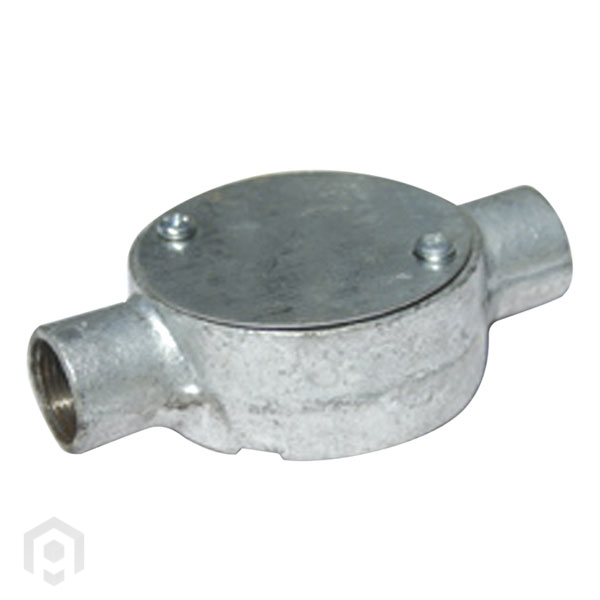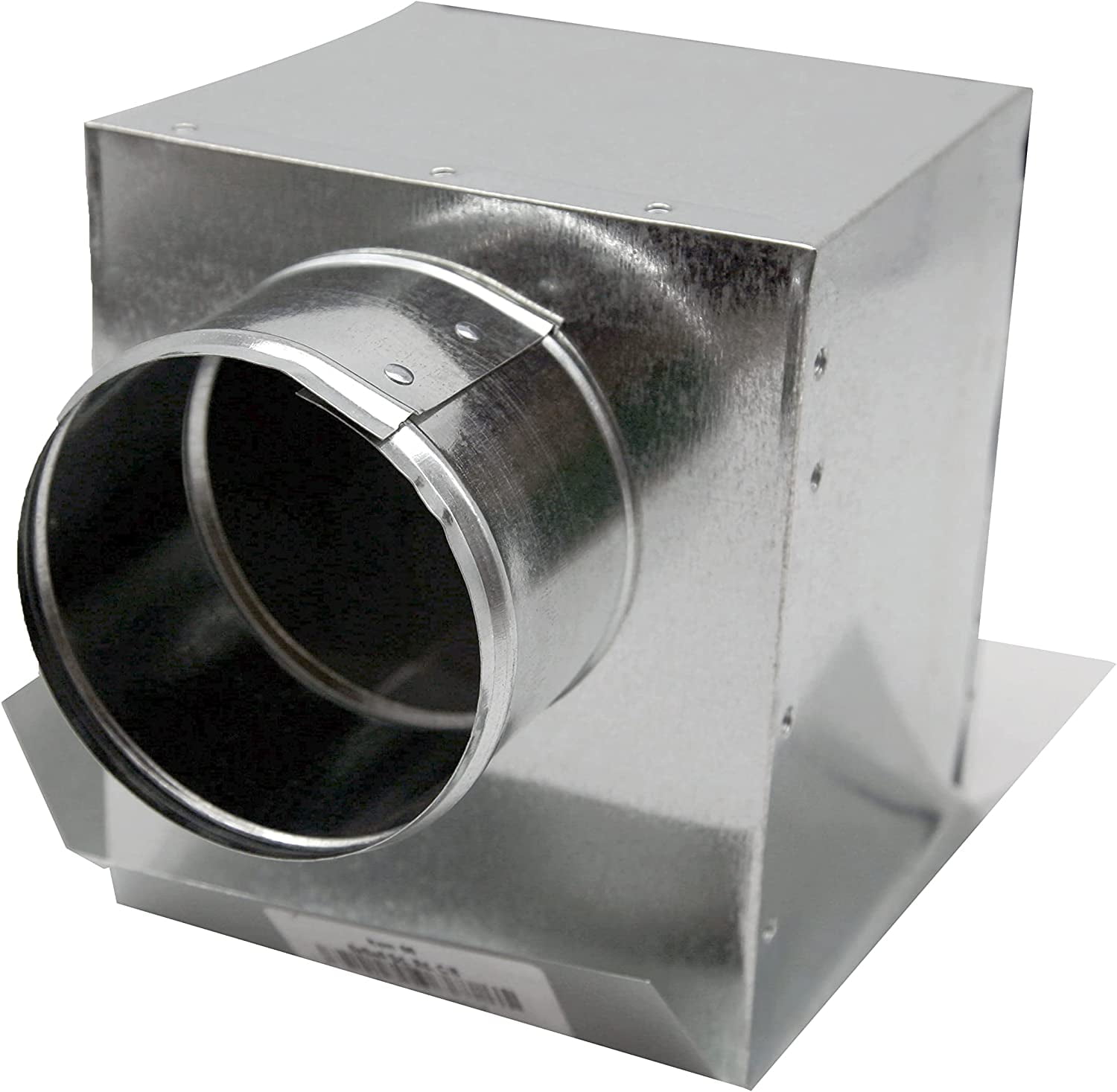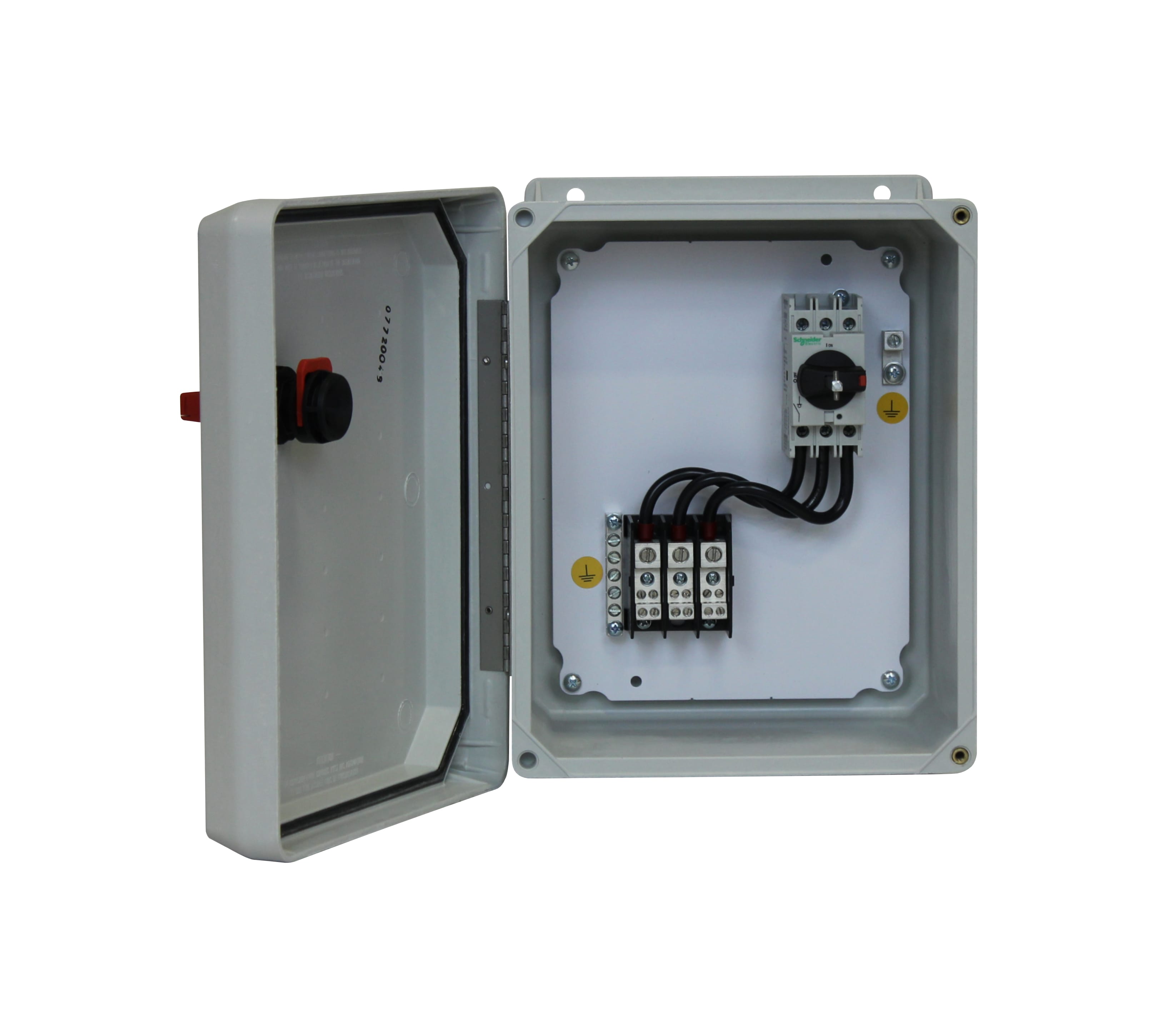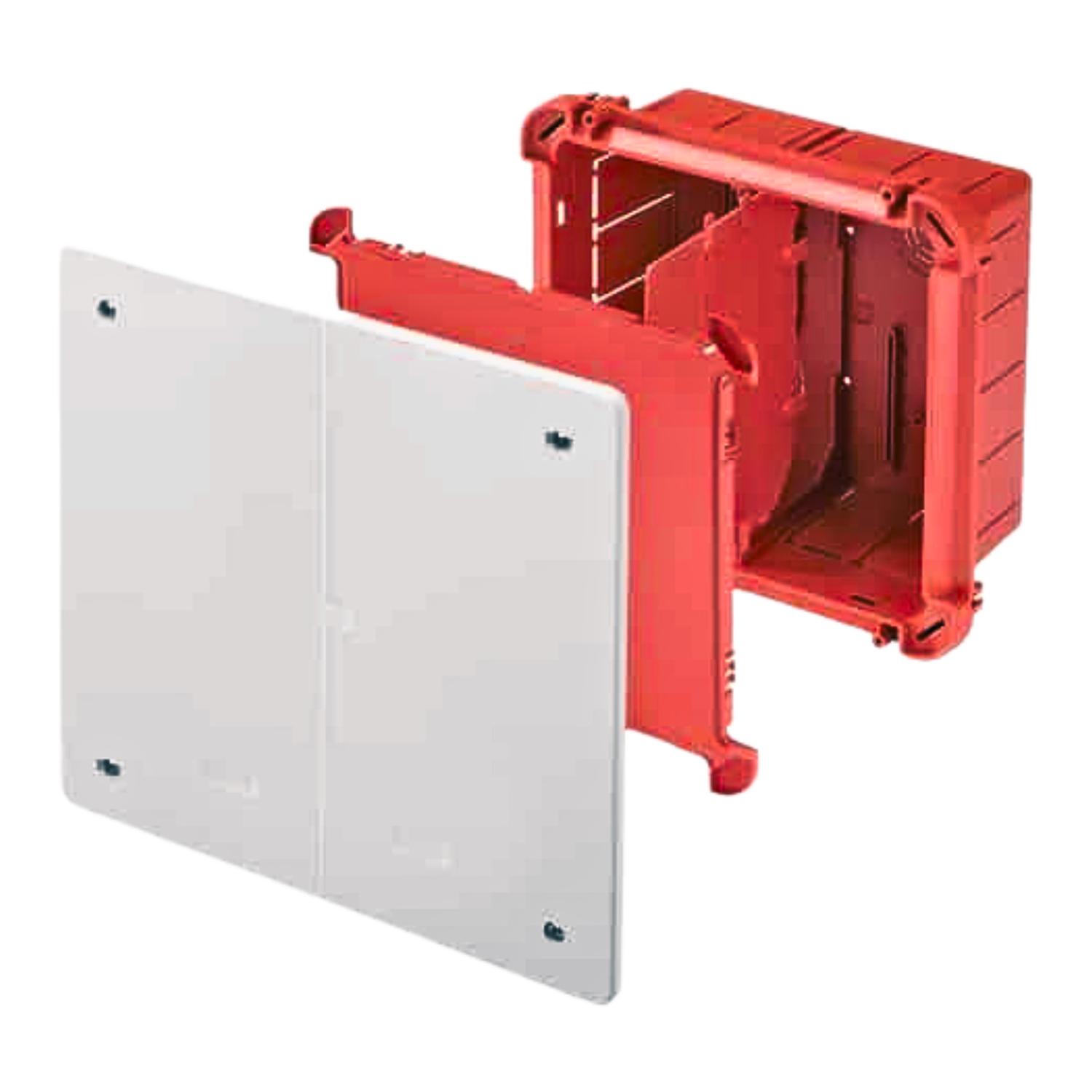Smart Tips About What Is A HVAC Junction Box

Junction Boxes Electrical Air Conditioning Alpha Wholesale HVAC
HVAC Junction Box
1. What exactly is this HVAC junction box we're talking about?
Okay, let's dive right in. An HVAC junction box is essentially a protective enclosure for electrical connections related to your heating, ventilation, and air conditioning (HVAC) system. Think of it like a little electrical party inside a metal or plastic box. It's where wires meet, get connected (or "joined," hence the name), and get safely distributed to various components of your HVAC unit, such as the fan motor, compressor, and control panel. Without it, you'd have a tangled mess of wires exposed to the elements, which is definitely not a good idea (and probably against code!).
Imagine you're building with LEGOs. The junction box is like that special connector piece that lets you attach multiple LEGO structures together. It allows different electrical circuits to safely interface, ensuring the correct voltage and current flow to each part of your HVAC system. These boxes are designed to prevent electrical shorts, protect against moisture and dust, and generally keep things safe and sound.
Now, why is this little box so important? Well, electricity and HVAC systems are a bit like oil and water — they need to be handled with care. A properly installed and maintained junction box keeps those electrical connections secure and prevents them from becoming a fire hazard or causing your system to malfunction. It's the unsung hero of your home's climate control, working tirelessly in the background to keep you comfortable.
Think of it as a tiny fortress protecting your wires from the outside world. It shields them from physical damage, like accidental bumps or curious pets (we've all been there, right?). More importantly, it provides a crucial layer of safety, ensuring that electricity stays where it's supposed to and doesn't accidentally decide to take a shortcut through you or your house. So, next time you hear a gentle hum from your HVAC system, remember the humble junction box diligently doing its job.

Why is an HVAC Junction Box Important?
2. Safety First! Why You Can't Skip This Little Box
Let's get real for a second: electricity is powerful stuff, and when it's not handled properly, bad things can happen. That's where the HVAC junction box steps in as the superhero of electrical safety. Its primary purpose is to contain and protect electrical connections. Without a proper enclosure, exposed wires can become a significant fire hazard, especially in environments where dust, moisture, or physical damage are potential threats. Think about it — exposed wires sparking near flammable materials is a recipe for disaster.
Beyond fire prevention, the HVAC junction box also protects the electrical components of your system from damage. Dust, debris, and moisture can corrode wires and connections, leading to system malfunctions and costly repairs. A well-sealed junction box acts as a barrier against these elements, ensuring the long-term reliability and efficiency of your HVAC unit. It's like a little bodyguard for your electrical system, constantly fending off potential threats.
Furthermore, a properly installed junction box helps to maintain code compliance. Electrical codes are in place to protect homeowners and ensure the safe operation of electrical systems. Using the correct type of junction box and ensuring it's installed according to regulations is crucial for passing inspections and avoiding potential fines. It's a small investment that can save you a lot of headaches in the long run.
And let's not forget the convenience factor! Junction boxes make it easier to access and troubleshoot electrical connections. Instead of having to untangle a mess of wires, a technician can quickly and easily identify and repair any issues within the junction box. This saves time and money on repairs, and it reduces the risk of further damage to your system. Its like having a well-organized toolbox instead of a chaotic pile of tools makes the job much easier!

Types of HVAC Junction Boxes
3. Choosing the Right Box for the Job
Believe it or not, not all HVAC junction boxes are created equal. They come in different shapes, sizes, and materials, each designed for specific applications and environments. Choosing the right type of junction box is crucial for ensuring the safety and reliability of your HVAC system. Let's take a look at some of the most common types.
First, you have your standard metal junction boxes. These are typically made of steel or aluminum and are known for their durability and resistance to physical damage. They're often used in commercial and industrial settings where there's a higher risk of impact or abrasion. Metal boxes also offer excellent shielding against electromagnetic interference, which can be important for sensitive electronic components.
Then there are plastic junction boxes, usually made of PVC or fiberglass. These are lightweight, corrosion-resistant, and non-conductive, making them ideal for damp or corrosive environments. Plastic boxes are also easier to work with than metal boxes, as they can be easily cut and drilled. They're a popular choice for residential HVAC systems.
Another important factor to consider is the enclosure rating. This rating indicates the level of protection the junction box provides against dust, moisture, and other environmental factors. For example, a NEMA 4 enclosure is watertight and dust-tight, while a NEMA 1 enclosure is only suitable for indoor use in dry environments. Choosing the appropriate enclosure rating is crucial for ensuring the longevity and reliability of your electrical connections.
Finally, you'll also encounter different sizes and configurations of junction boxes. Some boxes are designed for surface mounting, while others are designed for flush mounting within a wall or ceiling. The size of the box will depend on the number of wires and connections it needs to accommodate. It's always a good idea to choose a box that's slightly larger than you think you'll need, to allow for future expansion or modifications. And don't forget to check your local electrical codes to ensure you're using the correct type and size of junction box for your application.

Common Issues and Troubleshooting
4. When Things Go Wrong with Your HVAC Junction Box
Even the most well-designed and installed HVAC junction box can experience problems over time. Exposure to the elements, physical damage, and improper installation can all lead to issues that need to be addressed. Recognizing these problems early on can prevent more serious damage to your HVAC system and ensure your safety.
One of the most common problems is corrosion. Moisture and condensation can cause the metal parts of the junction box to corrode, leading to loose connections and electrical shorts. If you notice rust or other signs of corrosion on your junction box, it's important to clean it thoroughly and replace any damaged components. Applying a corrosion-resistant coating can also help to prevent future problems.
Another common issue is loose wiring. Vibrations from your HVAC system can cause screws and connectors to loosen over time, leading to intermittent electrical problems. Regularly inspecting your junction box for loose connections and tightening them as needed can prevent these issues. It's also a good idea to use wire connectors that are designed to resist loosening, such as twist-on connectors with locking wings.
Overheating is another potential problem. If the wires inside the junction box are carrying too much current, they can overheat and melt the insulation, leading to a fire hazard. This can be caused by undersized wiring, overloaded circuits, or damaged components. If you notice a burning smell coming from your HVAC system, or if the junction box feels excessively hot to the touch, shut off the power immediately and call a qualified electrician.
Finally, improper installation is a common cause of junction box problems. Using the wrong type of box, failing to properly seal the box against moisture, or not following electrical codes can all lead to issues. If you're not comfortable working with electricity, it's always best to hire a qualified electrician to install or repair your HVAC junction box. It's a small price to pay for peace of mind and the safety of your home.

Junction Boxes Qehribar
DIY vs. Hiring a Professional
5. When to Roll Up Your Sleeves and When to Call for Backup
Okay, so you've learned all about HVAC junction boxes. Now you're probably wondering, "Can I tackle this myself, or do I need to call in the pros?" That's a valid question, and the answer depends on a few factors, including your electrical skills, your comfort level, and the complexity of the job.
If you're comfortable working with electricity and have experience with basic wiring, you might be able to handle some minor repairs or replacements yourself. For example, replacing a damaged cover or tightening a loose connection might be within your skill set. However, it's important to proceed with caution and always follow safety precautions, such as turning off the power before working on any electrical components.
On the other hand, if you're dealing with more complex issues, such as replacing an entire junction box, rewiring circuits, or troubleshooting electrical problems, it's definitely best to call a qualified electrician. Electrical work can be dangerous, and even a small mistake can have serious consequences. A licensed electrician has the training, experience, and tools necessary to safely and effectively handle these types of jobs.
Moreover, electrical codes vary from place to place, and a professional electrician will be familiar with the local regulations and requirements. They can ensure that the work is done properly and that your HVAC system is up to code. This can save you from potential fines and headaches down the road.
Ultimately, the decision of whether to DIY or hire a professional comes down to your own comfort level and skill set. If you're unsure about anything, it's always better to err on the side of caution and call a qualified electrician. It's a small investment that can protect your home and your family from electrical hazards. Remember, safety first!
